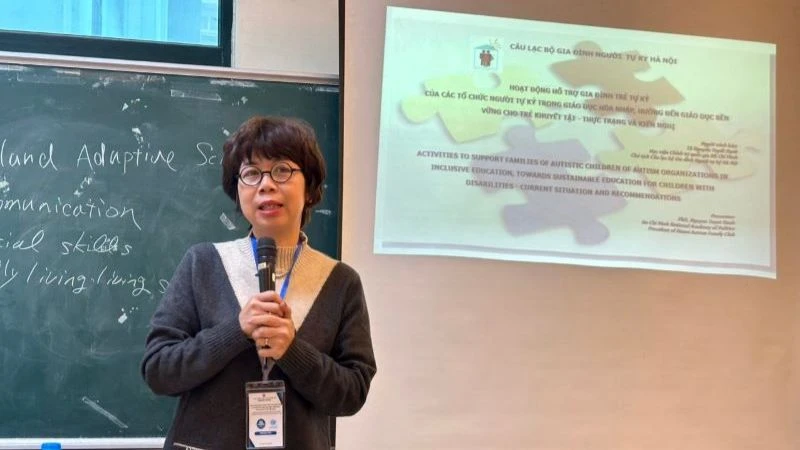Hanoi 14 year old boy has been slow to read and write since childhood, growing up has difficulty concentrating when reading books, forgets, doctor diagnosed with learning disorder.
Family members said that since he was a child, he had difficulty with Vietnamese, not understanding the content of sentences, and misspelled words. He also often could not think of words to say a clear sentence. As he grew older, he was poor at subjects that required dexterity such as paper cutting and model building. He also spoke little, spoke slowly, and often had to stop to think of words.
For the past six months, the child has been transferred to a new school, showing signs of boredom, fatigue, and lack of concentration. He often gets angry, irritable, and pulls the hair of his classmates. Doctors at the National Institute of Mental Health diagnosed the child with adolescent-onset emotional and behavioral disorders and learning disorders.
On November 20, Dr. Nguyen Hoang Yen, Department of Child and Adolescent Psychiatry, Institute of Mental Health, said that learning disorders are developmental disorders that begin during the normal educational period. Learning disorders in children are described as not achieving good results in the field of learning such as reading, writing or mathematics, when compared to the child's overall intellectual ability. About 3-12% of the world's population suffers from this disorder.
There are three types of learning disorders: reading disorders, writing disorders, and arithmetic disorders. Reading disorders are the most common (affecting 10-36% of school-age children). Arithmetic disorders are less well studied, estimated to occur in 5-8% of children.

A patient being treated at the Institute of Mental Health. Photo: Le Nga
Dr. Le Cong Thien, Head of the Pediatric Psychiatry Clinic, Institute of Mental Health, said that learning disorders have not received due attention. Many people think that children who are slow to read or write are normal and will go away at a certain age. Recently, among many patients who came to the Pediatric Psychiatry Clinic due to skill problems, doctors have recorded a number of cases of learning disorders.
Signs of learning disorders include late speech, difficulty speaking, and slow learning of colors and letters.
"In primary school, children have poor letter recognition and difficulty spelling. In secondary school, patients have difficulty with expressive language, poor expression, and impaired verbal working memory," said Dr. Thien.
Doctors advise that when there are unusual signs above, the family should take the child to a medical facility for examination and treatment. Depending on the type of disorder, there will be a specific treatment plan. There is currently no approved drug to treat this disorder. Treatment methods include cognitive-behavioral therapy; psychodynamic therapy; cognitive analysis; art; drama; music; family-systemic therapy.
Le Nga
Source link






![[Photo] Visiting Cu Chi Tunnels - a heroic underground feat](https://vstatic.vietnam.vn/vietnam/resource/IMAGE/2025/4/8/06cb489403514b878768dd7262daba0b)





















































































Comment (0)